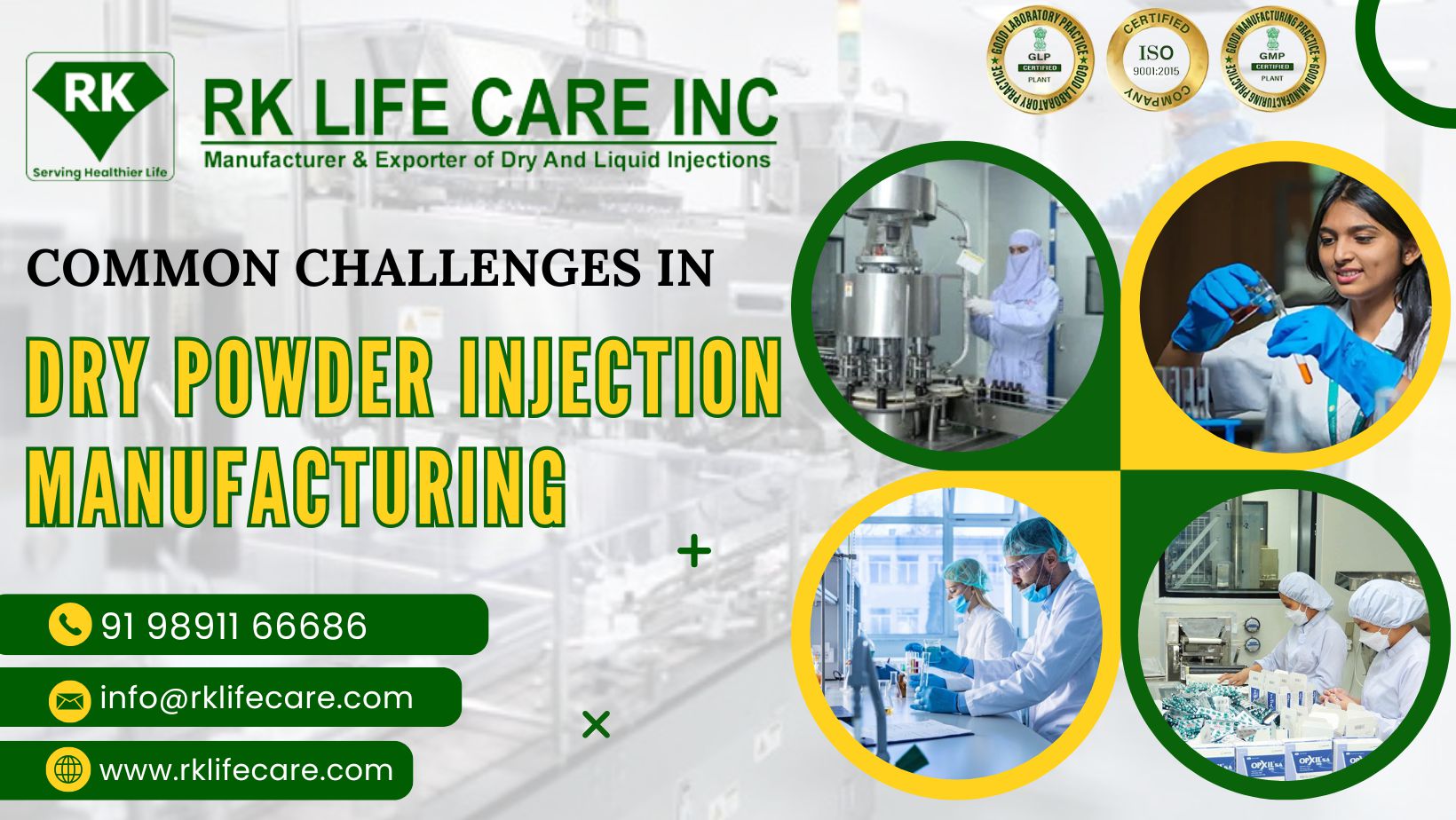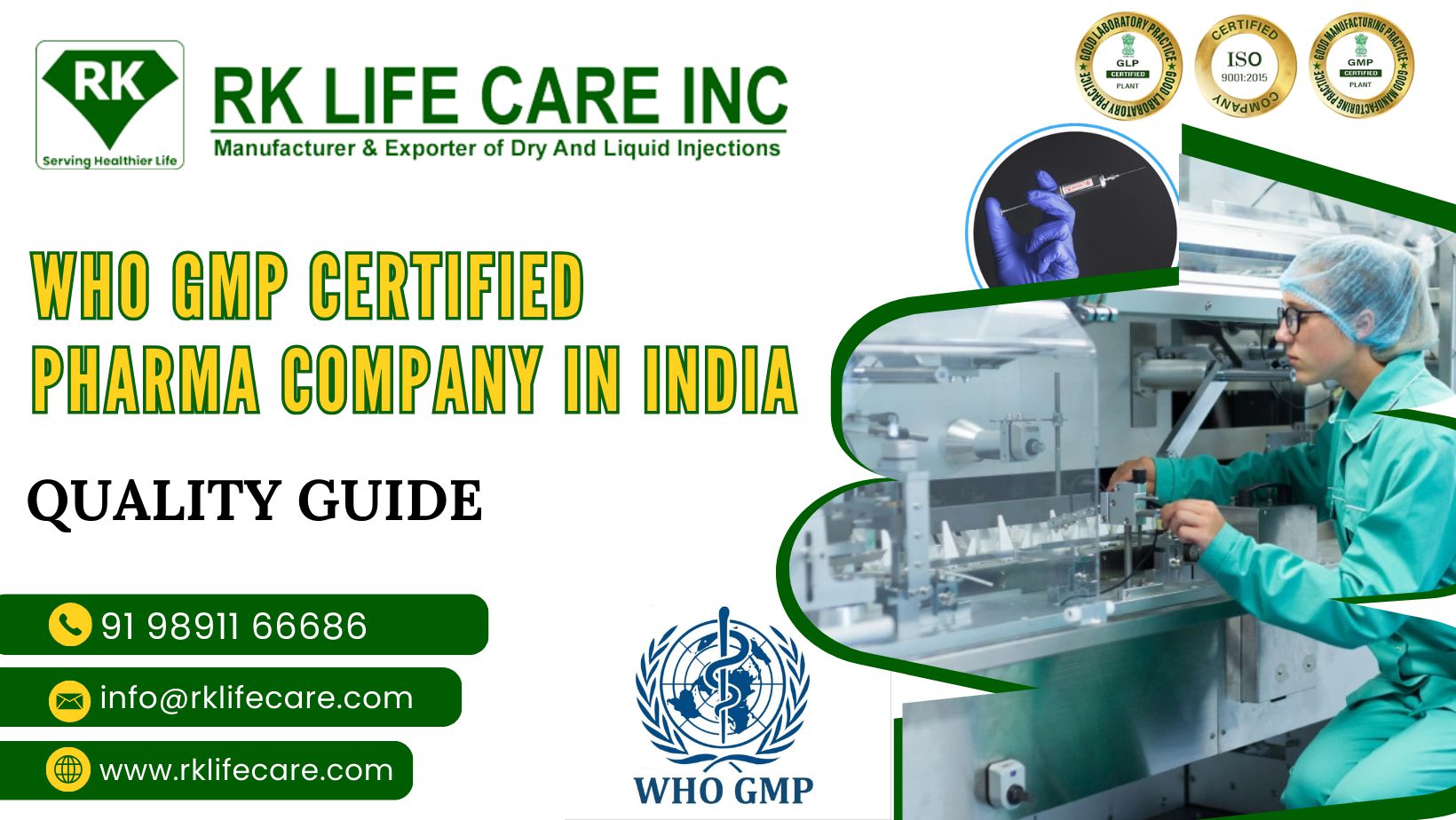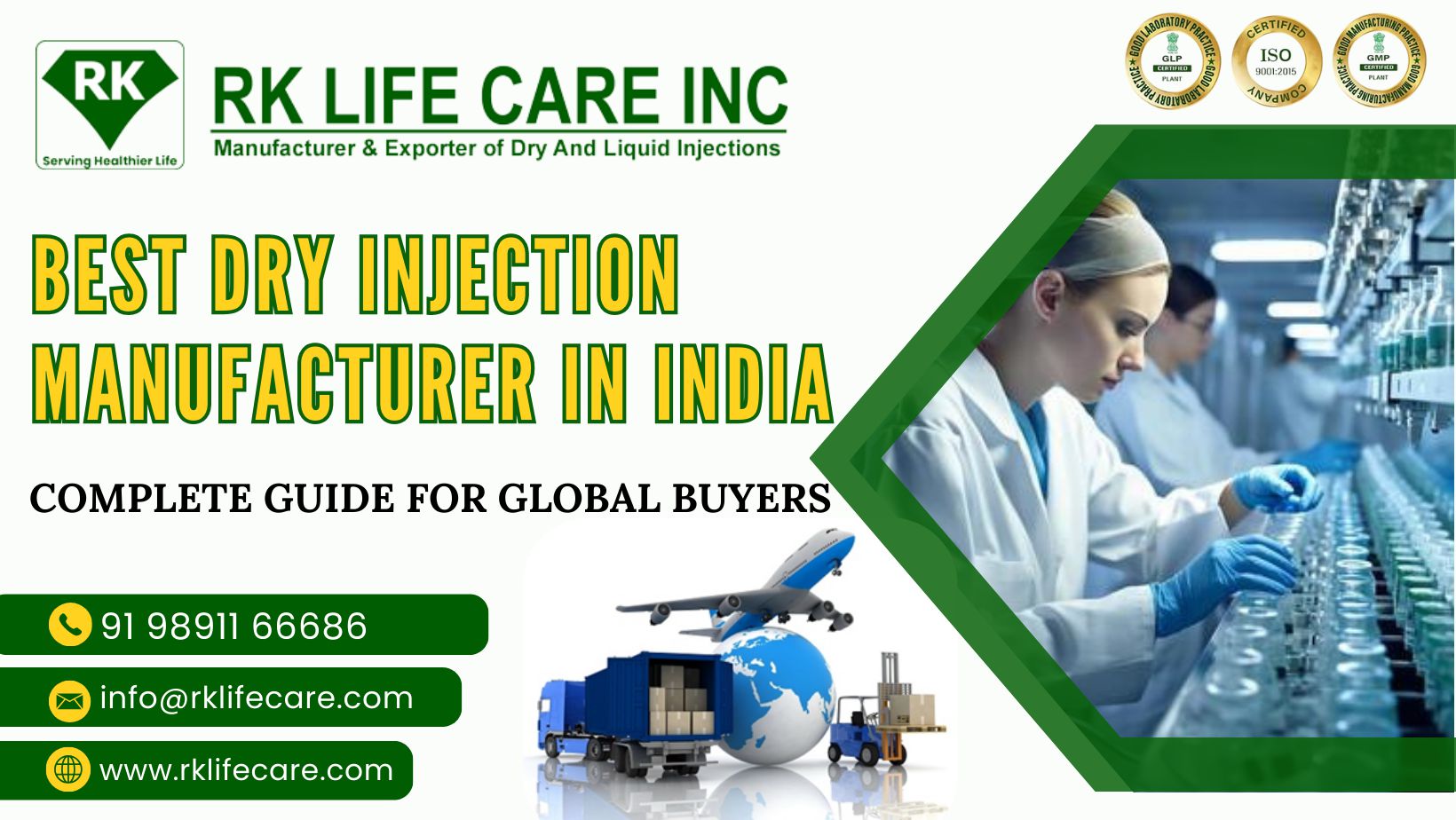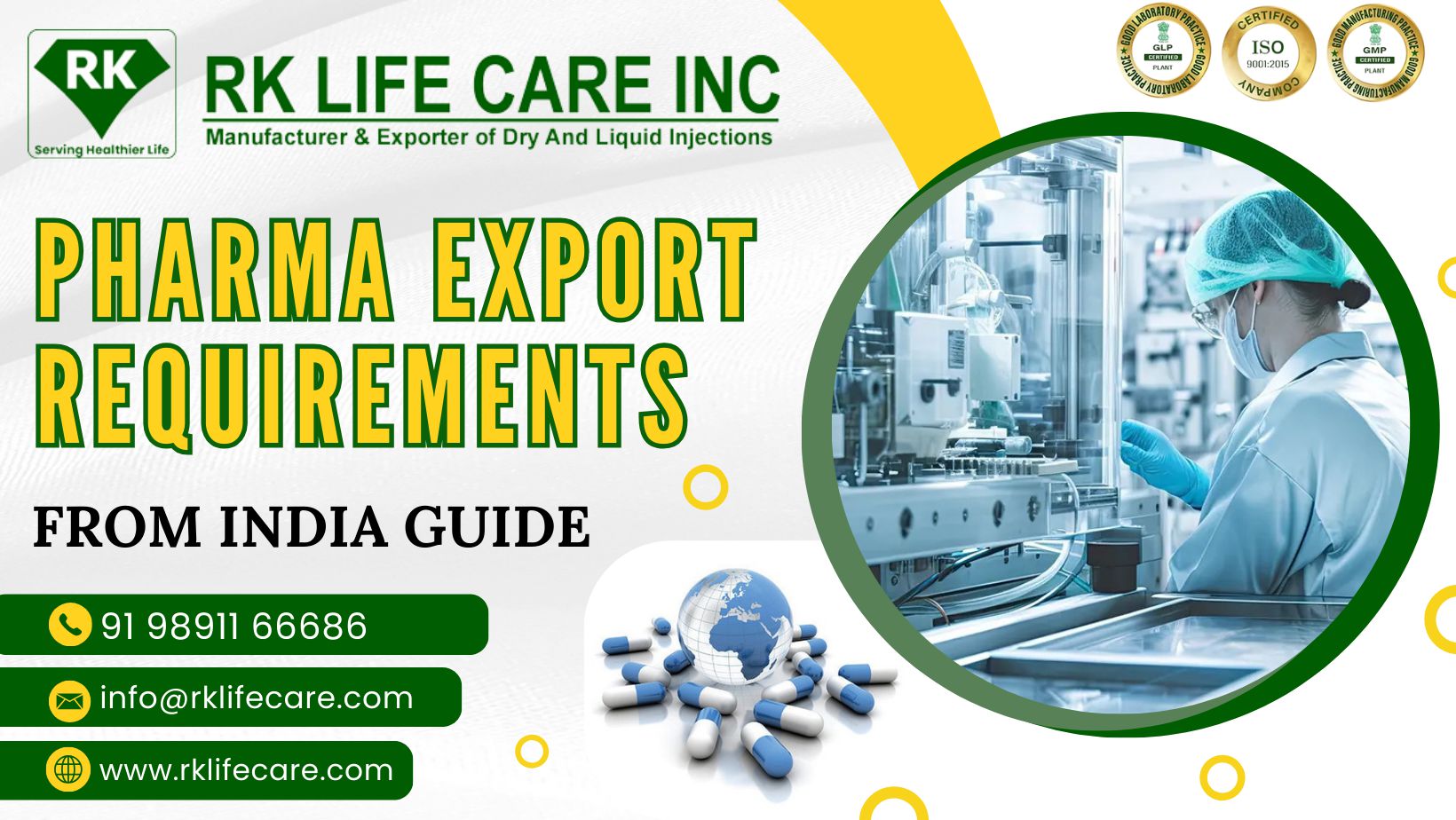.jpg)
The Pharmaceutical Manufacturing industry stands as a pillar of global healthcare, tirelessly working behind the scenes to produce the medications that keep people healthy and treat various medical conditions. In this exploration, we delve into the multifaceted benefits and advantages that define the pharmaceutical manufacturing landscape, with a focus on the role of Pharmacy Manufacturers and the thriving industry in India.
Understanding Pharmaceutical Manufacturing:
Pharmaceutical Manufacturing Defined:
Pharmaceutical Manufacturing is the complex process of transforming raw materials into safe, effective, and high-quality medicines. This intricate journey involves the synthesis of active pharmaceutical ingredients (APIs), drug formulation, and the subsequent production and packaging of medications. The pharmaceutical manufacturing industry encompasses a wide array of activities, ranging from research and development to quality control and distribution.
Key Players: Pharmacy Manufacturers and Pharma Manufacturing Companies:
Pharmacy Manufacturers, often part of larger Pharma Manufacturing Companies, are the driving force behind the production of medicines. These entities play a crucial role in ensuring that medications are not only readily available but also meet the highest standards of safety and efficacy. The synergy between Pharmacy Manufacturers and the broader pharmaceutical manufacturing industry is essential for addressing the diverse healthcare needs of individuals globally.
Advantages of Pharmaceutical Manufacturing:
1. Innovation in Research and Development:
Continuous Exploration: Pharmaceutical Manufacturing is synonymous with innovation through Research and Development (R&D). Companies invest significantly in exploring new drug candidates, novel formulations, and cutting-edge technologies. This commitment to R&D ensures a constant stream of medical advancements, pushing the boundaries of healthcare.
Addressing Unmet Medical Needs: The industry's dedication to R&D allows for the discovery and development of new drugs that address previously unmet medical needs. This fosters a culture of innovation that contributes to improved treatment options for various diseases and conditions.
2. Job Creation and Economic Growth:
Diverse Employment Opportunities: Pharmaceutical Manufacturing creates a multitude of job opportunities across various disciplines. Scientists, researchers, technicians, manufacturing specialists, and marketing professionals all contribute to the industry's workforce. This diversity in employment fosters a dynamic and skilled labor pool.
Economic Contribution: Beyond job creation, the pharmaceutical manufacturing industry significantly contributes to economic growth. The production, distribution, and export of pharmaceuticals contribute to a country's Gross Domestic Product (GDP), stimulating economic development.
3. Quality Standards and Regulatory Compliance:
Ensuring Product Integrity: Quality standards and regulatory compliance are paramount in pharmaceutical manufacturing. The industry adheres to stringent guidelines, such as Good Manufacturing Practices (GMP), to ensure the integrity of the products. This commitment to quality is crucial for producing medications that are safe, effective, and reliable.
Meeting Global Regulatory Standards: Pharma Manufacturing Companies actively engage with regulatory authorities to ensure that their processes and products comply with international standards. This not only facilitates global trade but also instills confidence in the safety and efficacy of pharmaceuticals.
4. Accessibility of Medicines:
Generic Drug Production: A significant advantage of pharmaceutical manufacturing is the production of generic medicines. Generic drugs are cost-effective alternatives to brand-name medications, making essential treatments more accessible to a broader segment of the population.
Affordable Healthcare: The affordability of generic drugs has a profound impact on healthcare accessibility. Pharmaceutical Manufacturing Companies contribute to making medicines affordable not only within their home countries but also globally, particularly in developing nations.
5. Global Supply of Medications:
Meeting Global Healthcare Needs: Pharmaceutical Manufacturing Companies, especially those in countries like India, contribute significantly to the global supply of medications. Their capacity to produce a diverse range of drugs positions them as key players in addressing healthcare needs worldwide.
Emergency Response Capability: The global reach of pharmaceutical manufacturing is highlighted in times of health emergencies. The industry has demonstrated its ability to respond rapidly to crises, such as the COVID-19 pandemic, by scaling up the production of essential medications and vaccines.
6. Technological Advancements:
Automation and Efficiency: Advancements in technology, including automation and digitalization, are transforming pharmaceutical manufacturing processes. Automated systems enhance efficiency, reduce errors, and contribute to the overall quality and consistency of pharmaceutical products.
Innovative Manufacturing Techniques: The adoption of innovative manufacturing techniques, such as continuous manufacturing, allows for greater flexibility and efficiency in production. These advancements contribute to streamlining processes and reducing time-to-market for new medications.
7. Collaboration and Knowledge Exchange:
Global Collaborations: The pharmaceutical manufacturing industry thrives on collaborations between companies, research institutions, and healthcare organizations. These partnerships foster knowledge exchange, allowing for the pooling of resources and expertise to address complex healthcare challenges.
Technology Transfer: Collaborations often involve technology transfer, where manufacturing know-how is shared between organizations. This accelerates the adoption of best practices, leading to advancements in manufacturing processes and product development.
Pharmaceutical Manufacturing in India: A Case Study:
The Rise of Pharmaceutical Manufacturing in India:
India has emerged as a global powerhouse in pharmaceutical manufacturing, contributing significantly to the production of both generic and branded medications. The success of the Indian pharmaceutical industry is attributed to several key factors.
Skilled Workforce: India boasts a skilled and diverse workforce, including scientists, researchers, and manufacturing professionals, contributing to the industry's success.
Cost-Effective Production: The industry's ability to produce high-quality medicines at competitive prices has positioned India as a preferred destination for pharmaceutical manufacturing.
Research and Development Initiatives: Indian pharmaceutical companies actively invest in research and development, driving innovation and contributing to the global knowledge base.
Global Exporter: India's pharmaceutical industry is a major exporter of medications, meeting healthcare demands worldwide and contributing significantly to the country's economic growth.
Benefits of Pharmaceutical Manufacturing in India:
Affordable Medicines: Indian pharmaceutical companies are renowned for their production of affordable generic medicines, contributing to healthcare accessibility globally.
Global Impact: The global supply of medications from India addresses health disparities, particularly in developing nations, making essential treatments more affordable and available.
Capacity for Innovation: The Indian pharmaceutical industry's commitment to innovation ensures the development of new drugs and treatment modalities, contributing to global healthcare advancements.
Job Creation: The industry generates employment opportunities for a diverse range of professionals, supporting economic growth and development.
Conclusion:
Pharmaceutical Manufacturing Companies are the unsung heroes of global healthcare, shaping the landscape of medicine through innovation, accessibility, and collaboration. From addressing unmet medical needs to contributing to economic growth, the benefits and advantages of pharmaceutical manufacturing are far-reaching. The industry's dynamic evolution, coupled with the rise of pharmaceutical manufacturing in India, underscores its pivotal role in advancing human health and well-being. As we navigate the future, the pharmaceutical manufacturing industry will continue to be a beacon of hope, providing solutions that improve lives around the world.

16 Feb 2026

14 Feb 2026

13 Feb 2026

12 Feb 2026

07 Feb 2026